In today's interconnected world, fostering international collaboration has become more essential than ever. Establishing agreements that promote mutual understanding and cooperation can lead to incredible advancements across various sectors. As we navigate through the complexities of global challenges, these partnerships serve as a vital stepping stone towards achieving shared goals. Curious about how to craft an effective international cooperation agreement? Read on for our step-by-step guide!
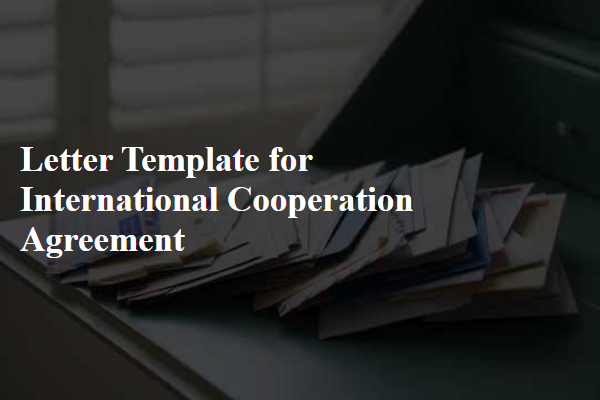
Clear objectives and purpose
International cooperation agreements are essential frameworks that facilitate collaboration between countries or organizations. Clear objectives often include enhancing trade relationships, promoting technological exchange, or fostering cultural understanding. The purpose typically revolves around addressing global challenges, such as climate change initiatives or health emergencies, as seen in the 2020 COVID-19 pandemic response. For instance, agreements may include specific targets like reducing carbon emissions by 30% by 2030 or sharing vaccine research and distribution strategies. Additionally, entities involved may establish joint committees to monitor progress and ensure compliance with agreed-upon standards, leading to sustainable partnerships that benefit all parties involved.
Legal and jurisdiction considerations
International cooperation agreements involve crucial legal and jurisdiction considerations that ensure enforceability across different legal systems. Parties typically address governing law, specifying which country's jurisdiction will apply in the event of disputes, often referring to established frameworks like the United Nations Convention on Contracts for the International Sale of Goods (CISG). Jurisdiction clauses clarify the chosen court or arbitration venue, which may vary based on the parties' locations, such as New York or London. Furthermore, consideration of international law principles, including the Vienna Convention on the Law of Treaties, provides clarity on treaty obligations. It's essential to identify conflict resolution mechanisms, ensuring mutual understanding of processes such as mediation or arbitration, crucial for maintaining fruitful international relations.
Roles and responsibilities of parties involved
An international cooperation agreement typically outlines the roles and responsibilities of each party involved to ensure effective collaboration. Each party must designate specific representatives responsible for communication, decision-making, and implementation of the agreement. Responsibilities may include sharing resources, providing expertise, and facilitating joint projects. For example, one party could be responsible for logistical support in the host country, while another party provides technical expertise in technology transfer. Each party should also establish timelines for deliverables and define reporting mechanisms to monitor progress and address potential challenges. Additionally, clearly defined roles can foster mutual understanding and ensure accountability throughout the collaboration.
Communication and reporting protocols
Effective communication and reporting protocols are essential for successful international cooperation agreements. These protocols outline the methods and frequency of information exchange between participating parties, ensuring transparency and accountability. For instance, regular meetings may be scheduled quarterly, allowing stakeholders from diverse regions, such as Europe and Asia, to discuss progress and challenges. Communication channels can include emails, secure online platforms like Microsoft Teams, and official reports submitted bi-annually. Reporting formats should adhere to internationally recognized standards, enabling clarity and consistency. Additionally, a designated point of contact, such as a project manager, facilitates prompt responses to inquiries and critical updates. Establishing these protocols supports collaboration and maintains momentum throughout the duration of the agreement.
Confidentiality and data protection measures
The international cooperation agreement emphasizes stringent confidentiality and robust data protection measures to safeguard sensitive information exchanged between parties. Data protection regulations, such as the General Data Protection Regulation (GDPR) applicable in the European Union, mandate strict adherence to privacy standards, including data minimization and purpose limitation. Confidentiality clauses delineate the boundaries for information sharing, prohibiting unauthorized disclosure. Each party must implement technical and organizational measures to protect personal data, ensuring secure transmission and storage methods such as encryption protocols. In cases of data breaches, prompt notification procedures are essential, aligning with Article 33 of the GDPR which requires notification within 72 hours. Sustainability in these practices fortifies trust, facilitating effective collaboration across borders.

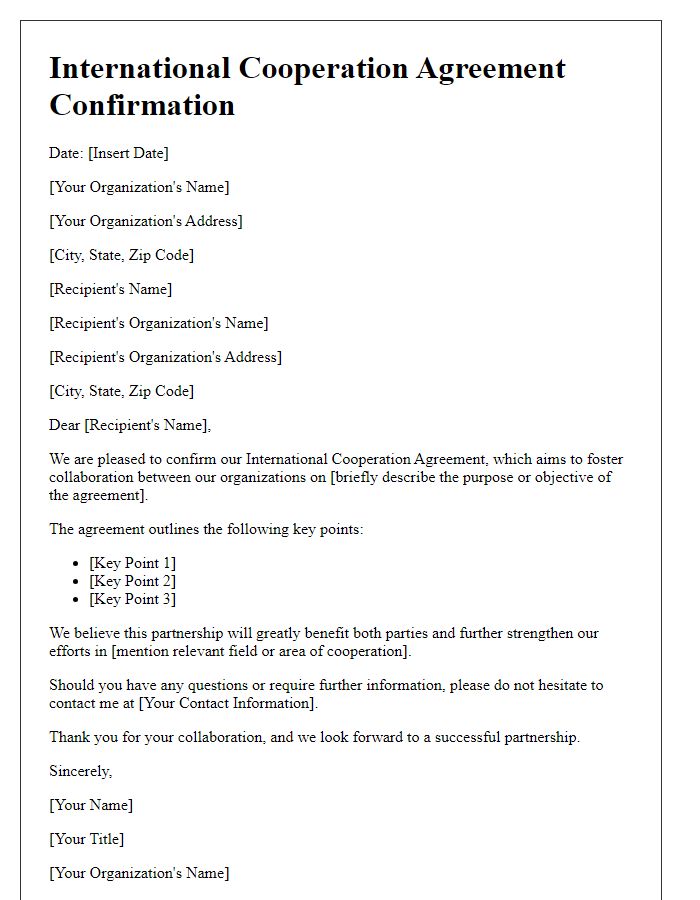
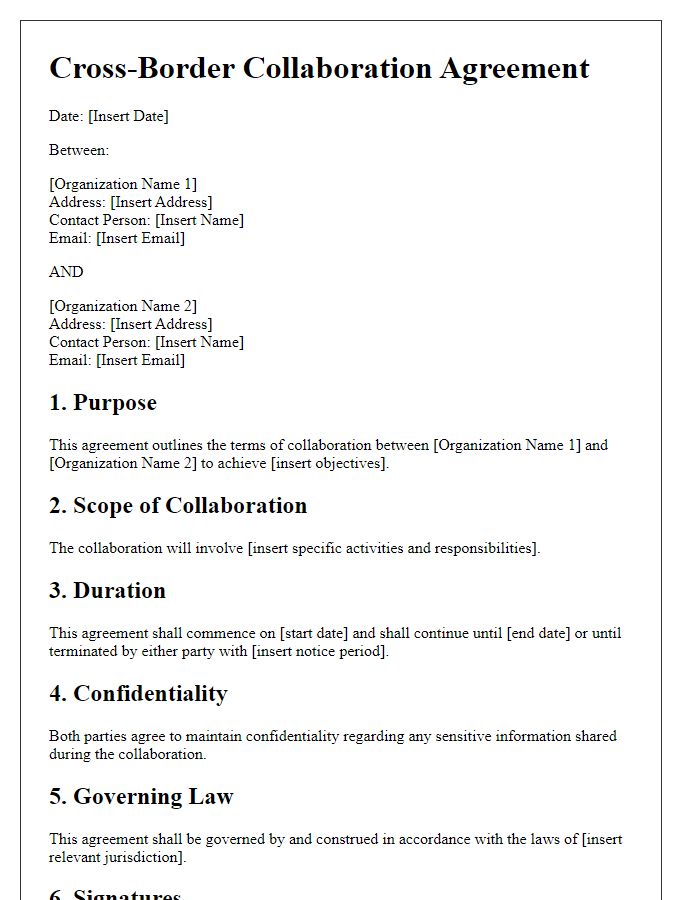
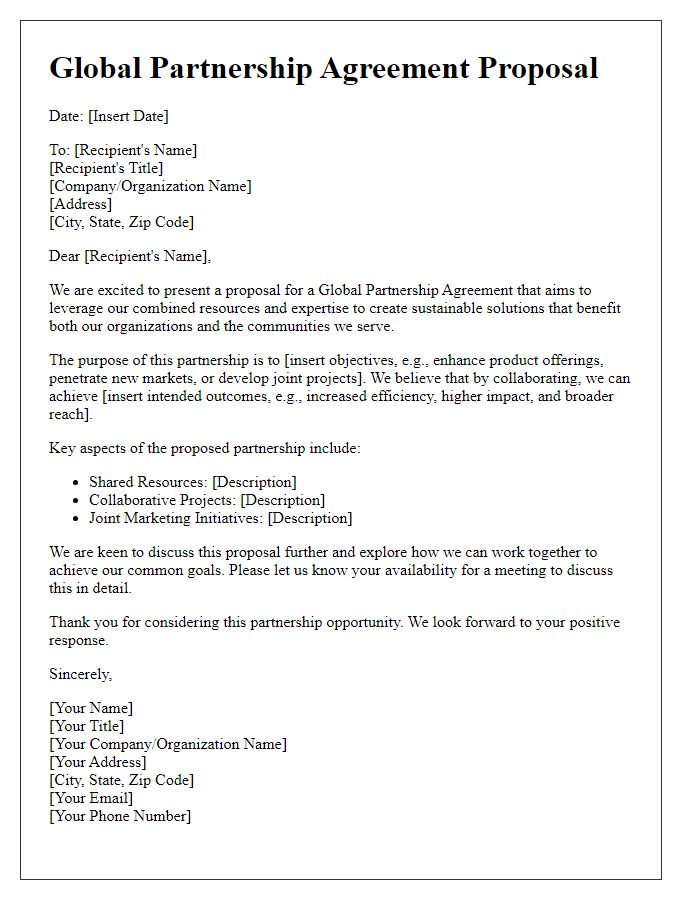
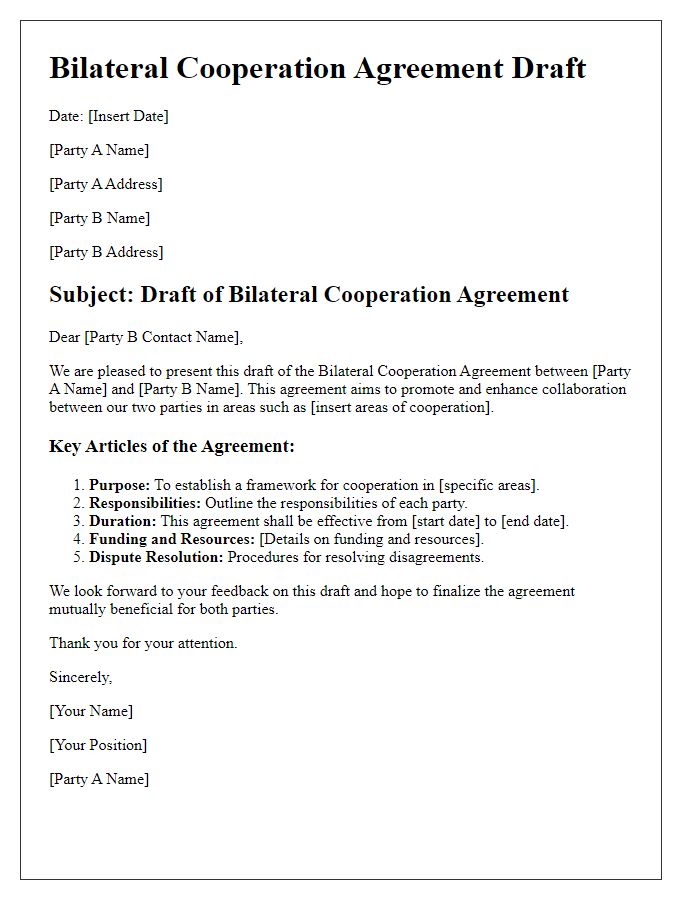
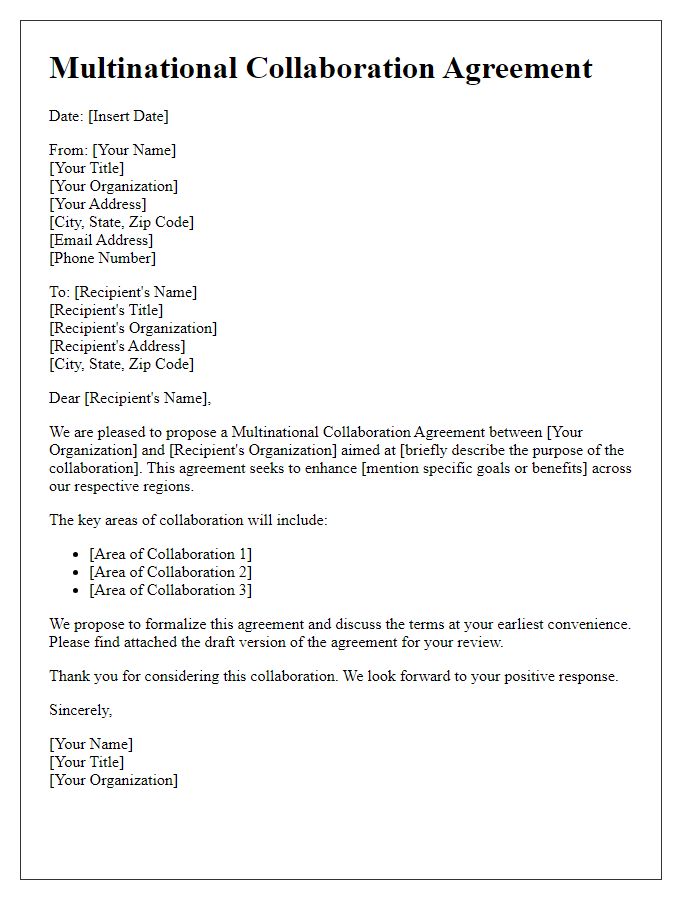
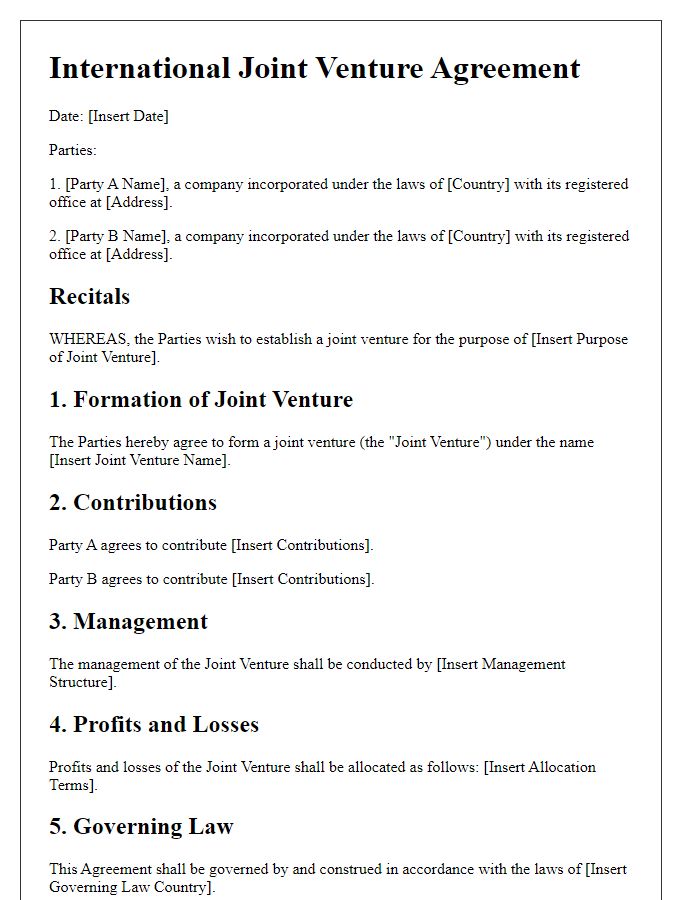
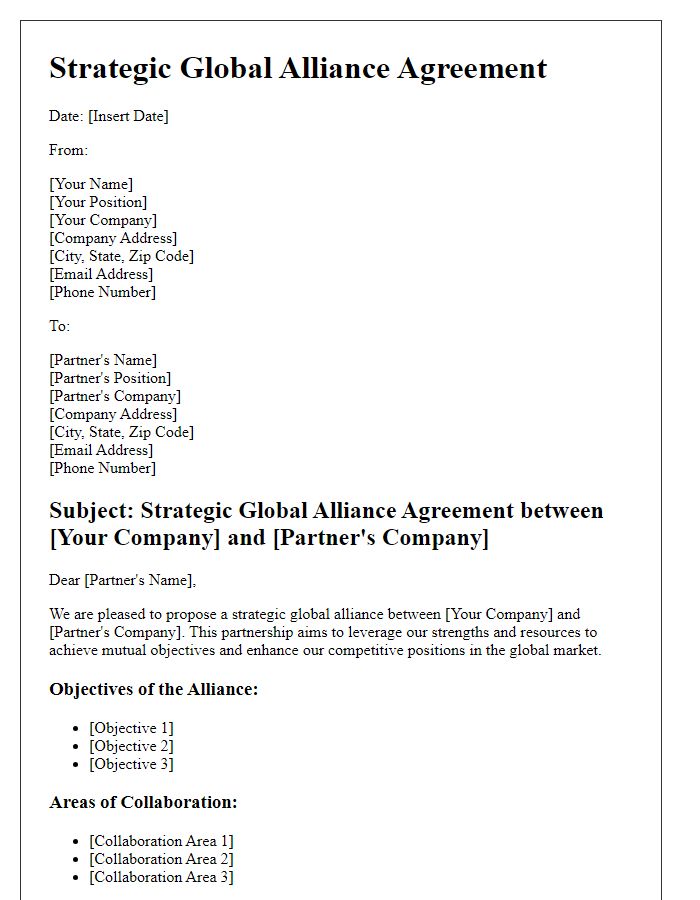
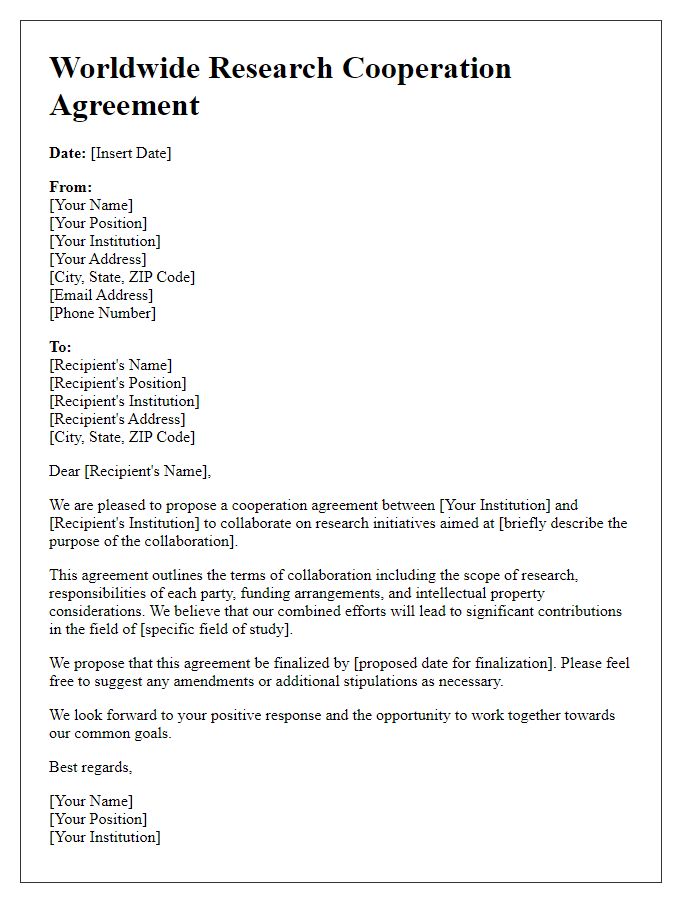
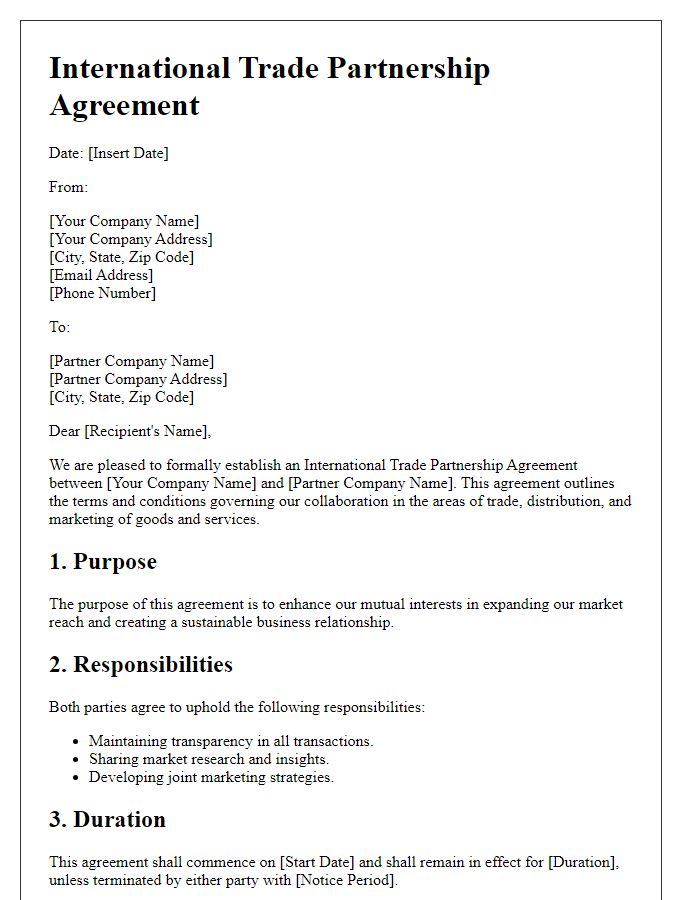
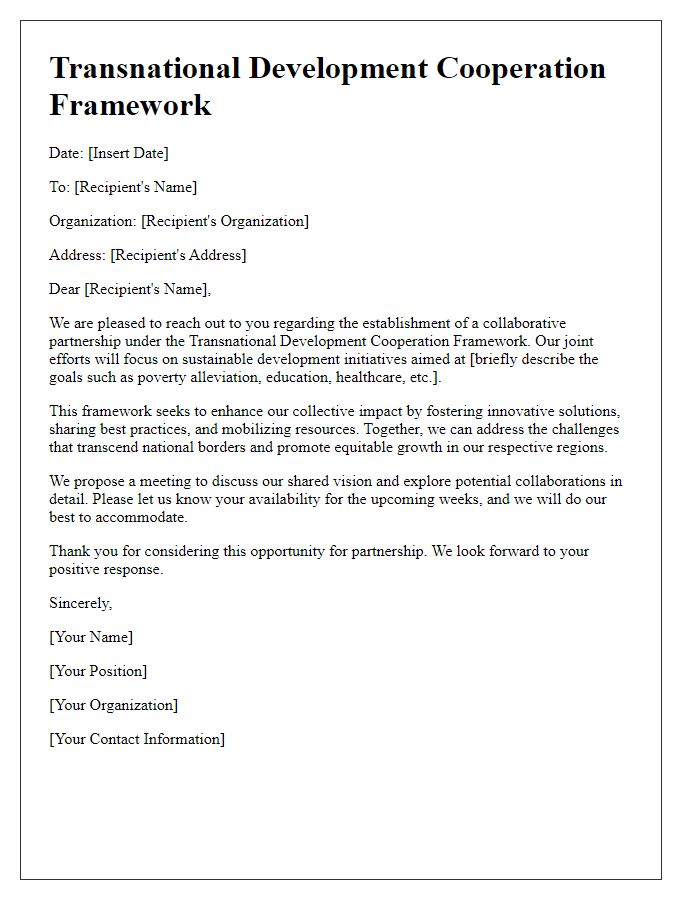


Comments